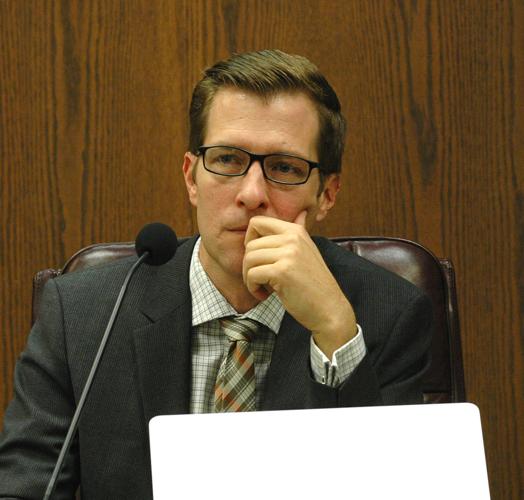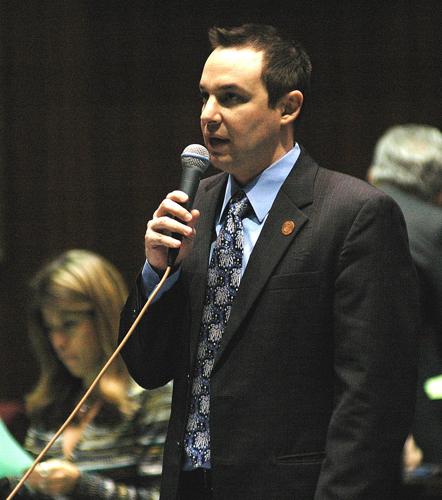PHOENIX — The organizer of a bid to quash a new state law easing rules on anonymous “dark money” donations in political races has folded his tent.
Rep. Ken Clark, D-Phoenix, said Friday he will not be able to get the required 75,321 valid signatures by the Aug. 5 deadline.
In fact, Clark said his approximately 300 volunteers have so far collected only about 20,000 names on petitions. And of that, he said a preliminary review shows only about 16,000 are valid.
Clark said the defeat came down to a lack of money.
“The general public understands that dark money is bad,” he said. “But we were not able to convince the larger money donors to come in and help up pay for petition gatherers.”
And Clark said that, as popular as he believes the issue is, an all-volunteer effort was bound to fail.
“Everybody on Facebook is distracted with Bernie and Hillary and Trump,” he said. “It is incredibly difficult to break through that cacophony.”
The result is that SB 1516 will take effect as scheduled Aug. 6.
Under current law, any group that spends money trying to influence a campaign has to disclose those expenditures.
The law says if the organization’s total spending on political issues is less than half of its budget, it need not disclose its donors. But it allows both the secretary of state and the Citizens Clean Elections Commission to demand that groups open their books to ensure compliance.
SB 1516 changes that to say if a group gets classified by the Internal Revenue Service as “social welfare” organization, it is presumed exempt from having to reveal the true sources of its dollars.
Rep. J.D. Mesnard, R-Phoenix, said the Internal Revenue Code aligns with Arizona law, with that 50 percent limit to get social welfare status.
But Clark said the IRS, unlike state agencies with oversight authority, does not actively police these groups to ensure they are, in fact, living within those limits.
And there’s something else.
While federal law says social welfare groups cannot spend more than half their money trying to elect candidates, there is no cap on how much of their budget they can spend trying to approve or defeat ballot measures. Clark said with SB 1516, groups could theoretically spend all their money from anonymous donors to run commercials designed to get Arizonans to vote one way or the other on ballot issues.
The amount of anonymous donations in the last election was close to $11 million.
In the governor’s race alone, the $5 million spent on the general election by Republican Doug Ducey and Democrat Fred DuVal was eclipsed by the $9 million others spent trying to influence the race.
Two Republicans got elected to the Arizona Corporation Commission with $3 million spent on their behalf by two outside groups. Arizona Public Service, the state’s largest electric utility that is regulated by the commission, has refused to confirm or deny whether it was the source of any of that cash.
Mesnard said during the legislative debate he does not have the same fear of anonymous donations as Clark.
“A message is a message,” he said.
“If it’s important to you to know who’s behind the message and you don’t know who’s behind the message, then disregard it,” he said. “But if it’s not important to you and you want to focus on the message itself, then there’s no harm done.”
And Mesnard said he believes that sometimes too much disclosure is a bad thing.
“The end result is a registry of every person and who they donated to,” he said. “I think that is entirely dangerous.”
Clark, who led the unsuccessful legislative fight against the bill when it was approved along largely party lines earlier this year, said he is not giving up. He said the next step is to build a coalition to come up with new statutes designed to ensure that voters know the true source of money behind political campaigns and commercials.
He likely would have an uphill fight. The chances of the Republican-controlled Legislature requiring more disclosure are virtually nil.
It was Secretary of State Michele Reagan, also a Republican, whose staff crafted what’s in SB 1516, pitching it as a clean-up of current campaign finance laws. And any moves to force more disclosure will get a fight from the Arizona Chamber of Commerce and Industry which has argued that laws compelling groups involved in political campaigns to identify their donors would chill First Amendment rights.







